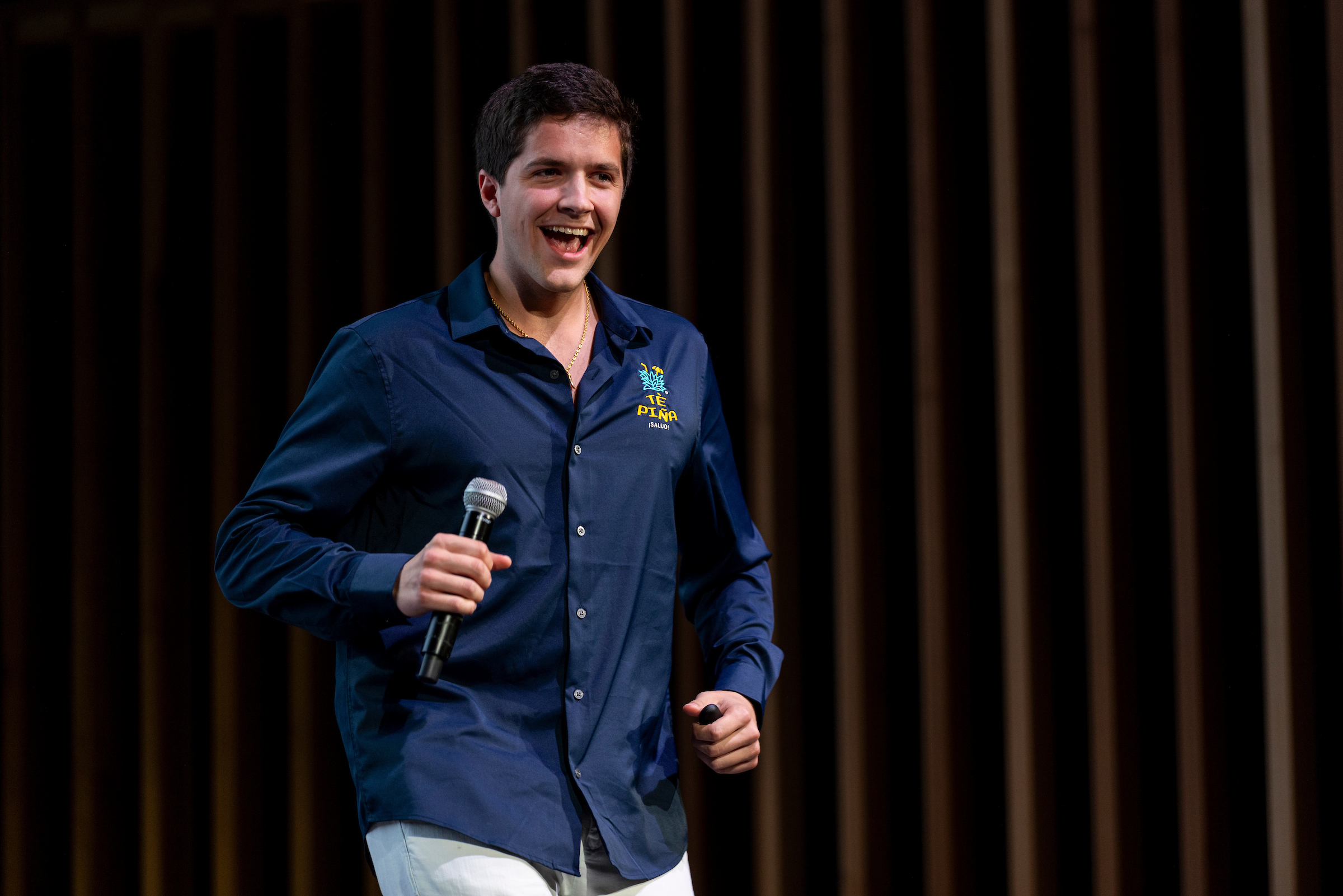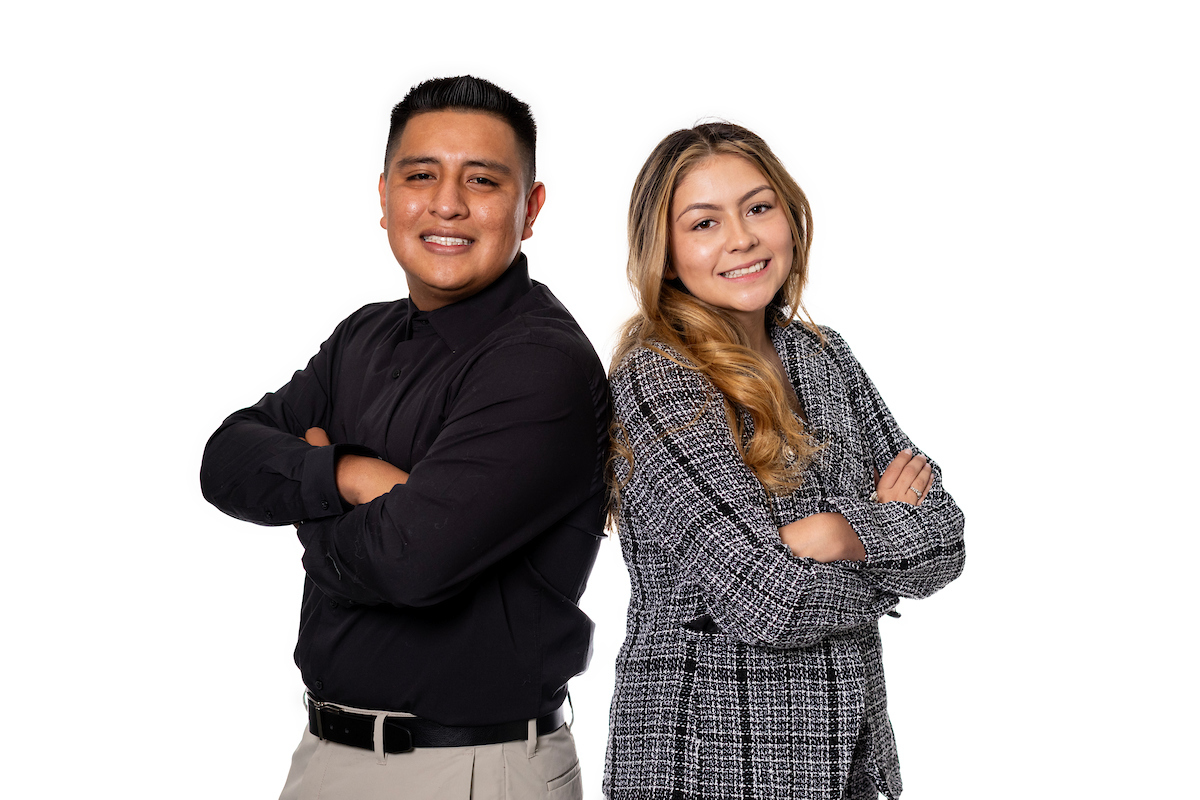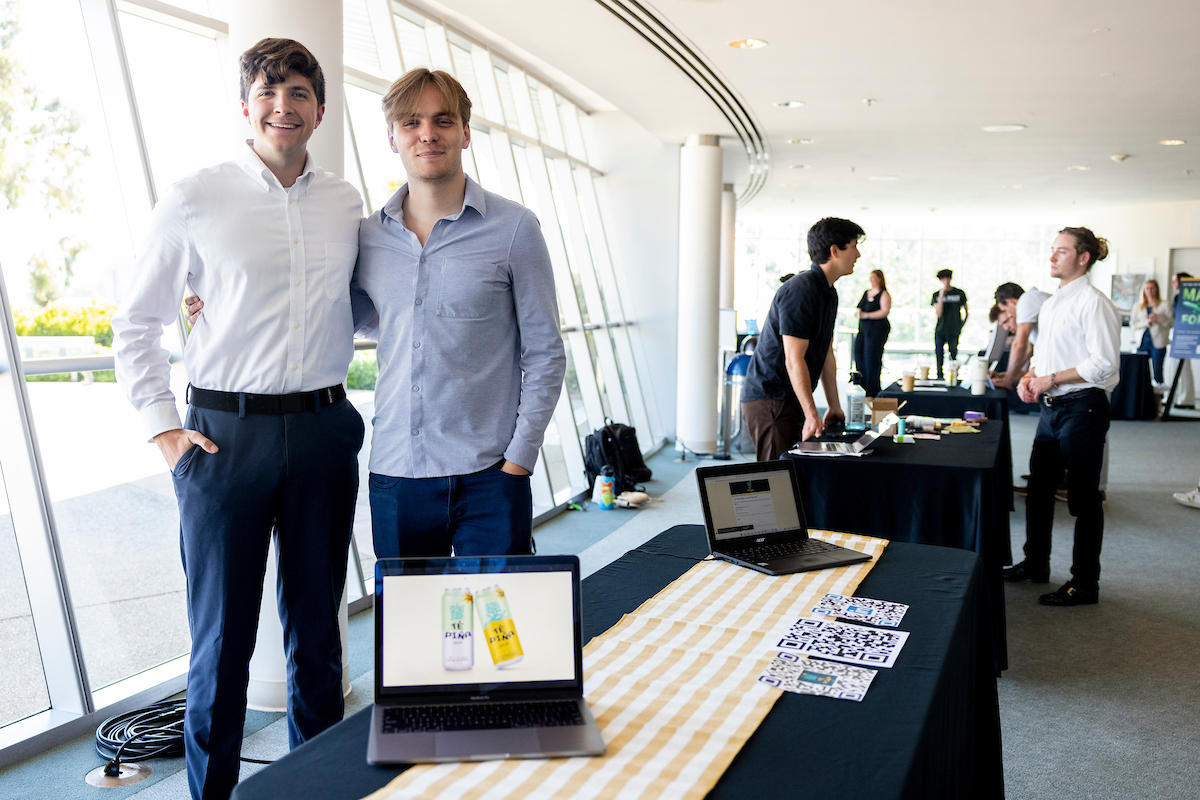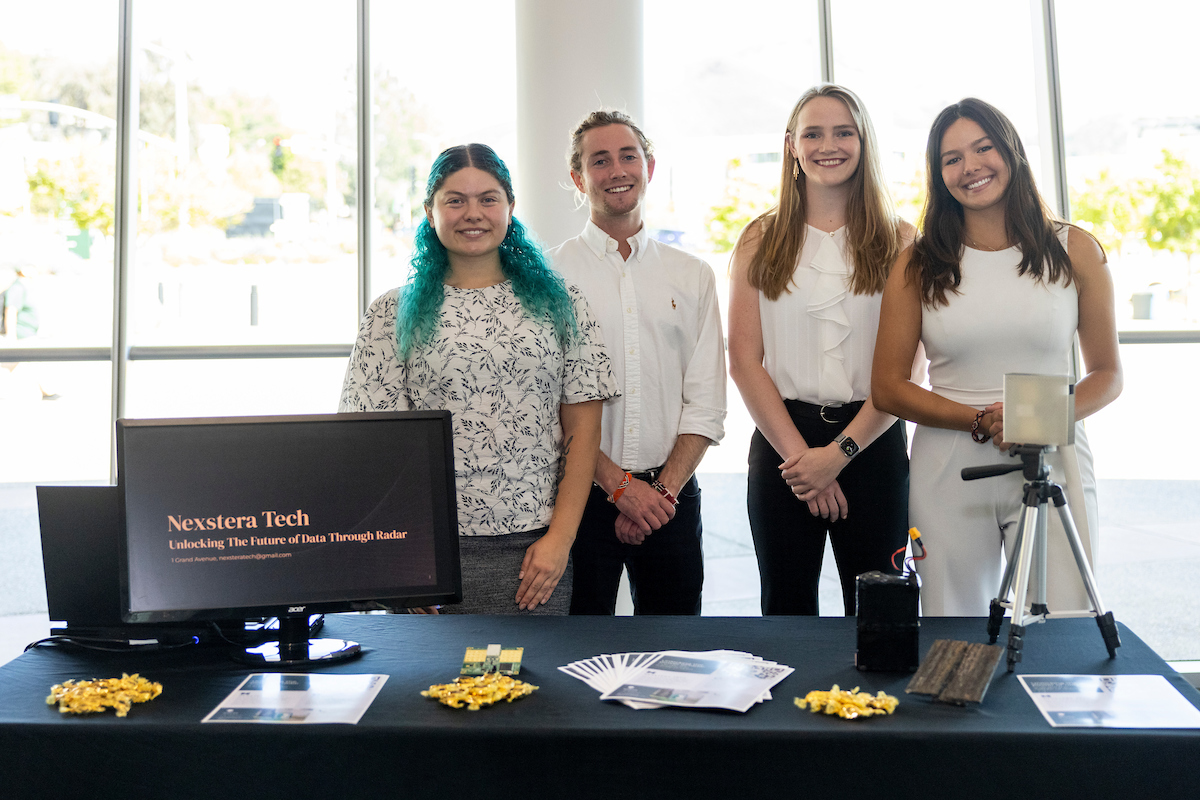At the Center for Innovation and Entrepreneurship (CIE) we tend to highlight success stories of companies who follow the path of our programs. While these startup journeys are undoubtedly inspiring, there is no one-size-fits-all formula for success. The road to it is not a one-way path; it’s more like a complex network of intersecting routes — you just need to find yours.
The following five Cal Poly alumni are examples of entrepreneurs who forged their distinctive paths to success. Their stories remain untold, not because they didn’t succeed but because they didn’t follow the traditional CIE success narrative. Nevertheless, we want to celebrate them because they are prime examples of resilience and the essence of entrepreneurship.
By sharing their stories, we hope to inspire individuals who resonate with their journey. Maybe you are not a Business major or concentrating in Entrepreneurship but want to pursue building a startup — Esha Joshi demonstrates that it’s possible! Maybe your first startup doesn’t scale like you’d hoped — Kaitlyn Henry shows that the skills obtained from entrepreneurship will open the door to more opportunities.
Becoming an entrepreneur is simple and where entrepreneurship can take you is limitless.
Esha Joshi | How majoring in computer science led to a successful startup venture
Cal Poly College of Engineering (CENG) alumnus Esha Joshi had a passion for startups, leading her to explore entrepreneurship.
“I was definitely very interested in doing something with startups — potentially even starting my own company — in college,” Joshi said.
In 2016, during her senior year, Joshi joined the Center for Innovation and Entrepreneurship (CIE) Hatchery. Her first startup, Repay, aimed to tackle the problem of inefficient reimbursement processes between businesses and their interviewees.
Joshi described this phase as both fun and educational, serving as a small precursor to running her own company.
The entrepreneurial skills she acquired during her time at the CIE became instrumental in her journey. Today, she is the co-founder of Yoodli, an app that leverages Artificial Intelligence (AI) to help users to build confidence while public speaking.
“The CIE helps students acquire the tools, develop the skills and cultivate the mindset of an entrepreneur,” Joshi explained.
Joshi’s remarkable journey to Yoodli led to her receiving prestigious awards, such as GeekWire’s Youngest Entrepreneur of the Year in 2022 and Forbes 30 Under 30: Consumer Technology in 2023. She and her co-founder have successfully raised more than $7 million from investors, including Madrona Venture Group and Vulcan Capital.
Kieran Scandrett | How a horticulture startup led to a career in sales
Cal Poly Orfalea College of Business (OCOB) alumnus Kiernan Scandrett pitched his innovative idea during iQ in 2018 and won second place. His startup Clove was a pre-seed, consumer product, subscription box and premium cooking content company aimed at becoming the HelloFresh of gardening.
After winning second place in iQ, Scandrett joined the Summer Accelerator.
Despite Clove’s inability to secure sufficient funding to continue, Scandrett considers running the company one of his “proudest moments.”
Inspired by his experience at the CIE, his co-founder encouraged him to pursue a career in sales, recognizing that entrepreneurship is inherently about selling ideas and solutions.
“As an entrepreneur, you are always selling. That’s your life: selling people on your products and your solutions, but most importantly, just selling yourself to people,” Scandrett said. “So it was there and then, almost immediately after that meeting, that I decided that I was going to pursue a career in sales.”
With his entrepreneurship education and horticultural experience, Scandrett successfully progressed to the position of Head of Sales at Habitat Horticulture, a role he held for nearly four years.
Scandrett’s message to aspiring entrepreneurs encourages those to believe in themselves and to not allow good ideas to go to waste.
“Believe in yourself and if you have trouble doing that, think about the person in your life who believes in you the most,” said Scandrett. “Try to bring that energy or manifest that same (confidence) in yourself.”
Kaitlyn Henry | How following her curiosity led to success with a career in investing
In 2016, Kaitlyn Henry, Cal Poly OCOB alumna, was involved in both the CIE’s Innovation Quest (iQ) and Summer Accelerator where she explored her AgTech startup, SpotDrop.
Henry said the Summer Accelerator played a pivotal role in their startup. It allowed them to move swiftly and learn from their failures, Henry said. She described her time as “the most amazing experience.”
Her experience in the Summer Accelerator expanded her knowledge about Venture Capital.
“Everything that I had done up until that point — being the business counterpart to a technical founder or technical team — venture capital and investing in startups felt like an extension of that… It took the parts that I loved about both (of my prior) jobs, and I got to experience all of that on a broader scale every single day,” Henry explained.
In 2016, she was recognized as the Entrepreneurship Outstanding Senior of the Year among more than 300 students for her remarkable achievements in cross-disciplinary entrepreneurial collaboration within the CIE’s Incubator program.
Although SpotDrop didn’t achieve product-market fit, Henry emphasized that she “learned a lot along the way.”
With the help of the entrepreneurial skills Henry developed during her time with the CIE, she is now the Vice President at OpenView, a venture capital and private equity firm, a role she has held for five years.
Patrick Pezet & Matt Canepa | How free pizza led to the start of a successful business
Cal Poly OCOB alumni Patrick Pezet and Matt Canepa stumbled upon an idea that would revolutionize Major League Baseball—an innovative coffee pouch as a healthier alternative to chewing tobacco.
After Pezet and Canepa came up with the idea, they saw a flier on campus that read: “Have a Cool Idea? Free Pizza!” Not thinking too much into it and hungry for some free pizza, they decided to go and present their idea.
To their surprise, people took a keen interest in their product, leading them to pitch their idea, Grinds Coffee, at iQ. They won the competition and received a $15,000 check.
Soon after, Grinds Coffee took off.
“Free pizza literally got us in the door. That’s why we walked in. And then that community — the small community and mentorship around it — that’s why we exist today. That’s why we gave it a shot,” Pezet shared.
In 2013, Pezet and Canepa pitched Grinds Coffee on Shark Tank, a popular reality show where wealthy investors calculate startups who pitch for funding. Grinds Coffee was featured in ESPN the Magazine, Entrepreneur Magazine and Fox Business Channel that same year.
Today, Grinds Coffee is a successful business with a product used in Major League Baseball and beyond. As of September 27, 2023, they had sold over four million cans.
“Don’t hold back a question, or a thought, or an idea because you’re unsure or not confident,” Pezet said. “Get involved and give it a shot.”









